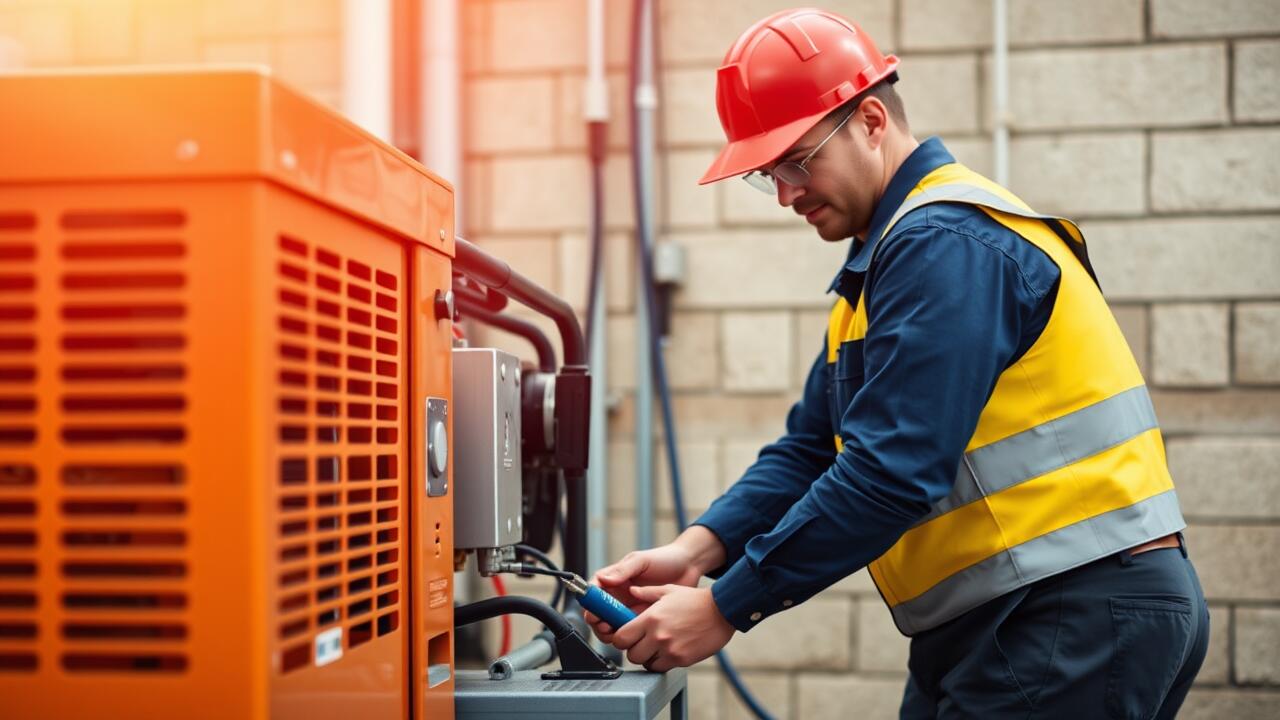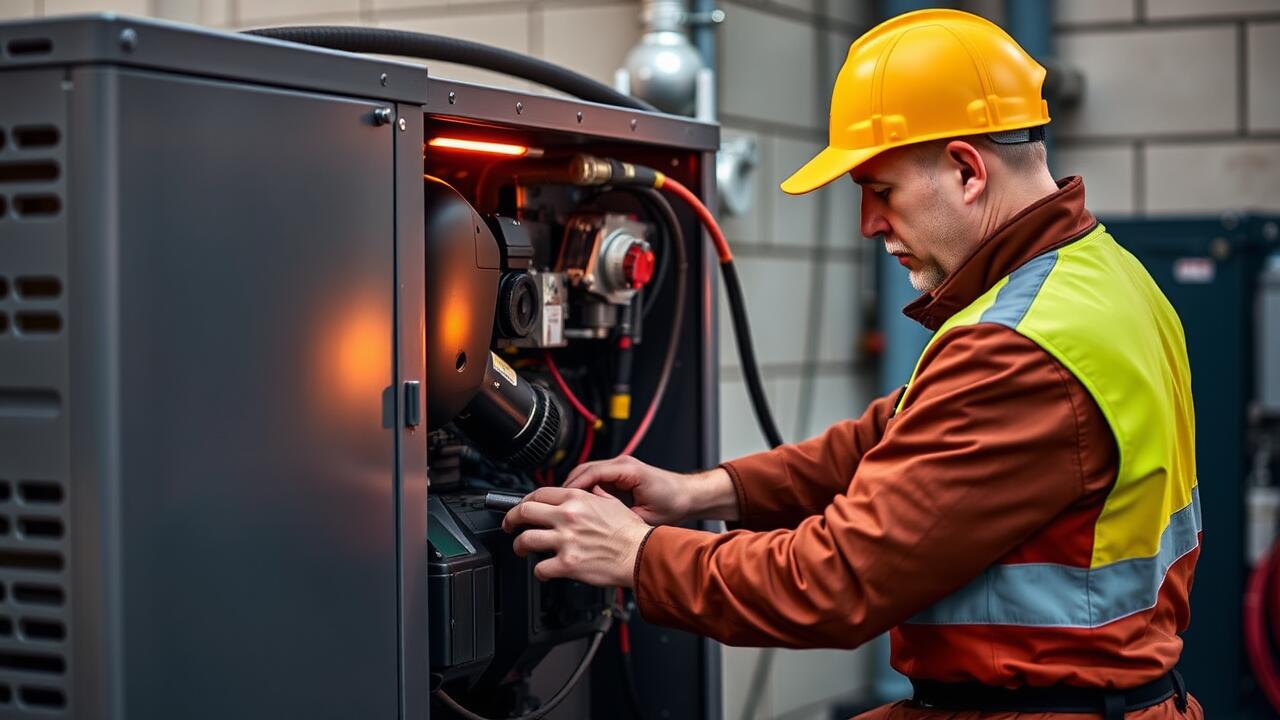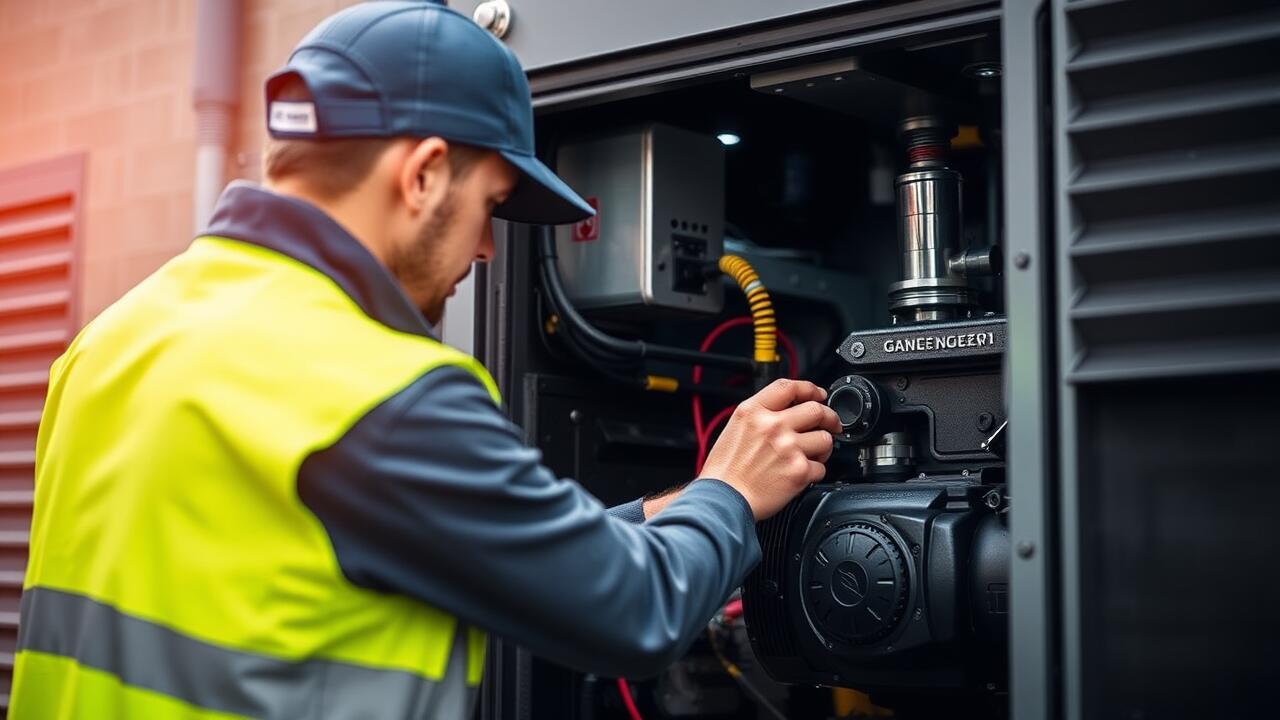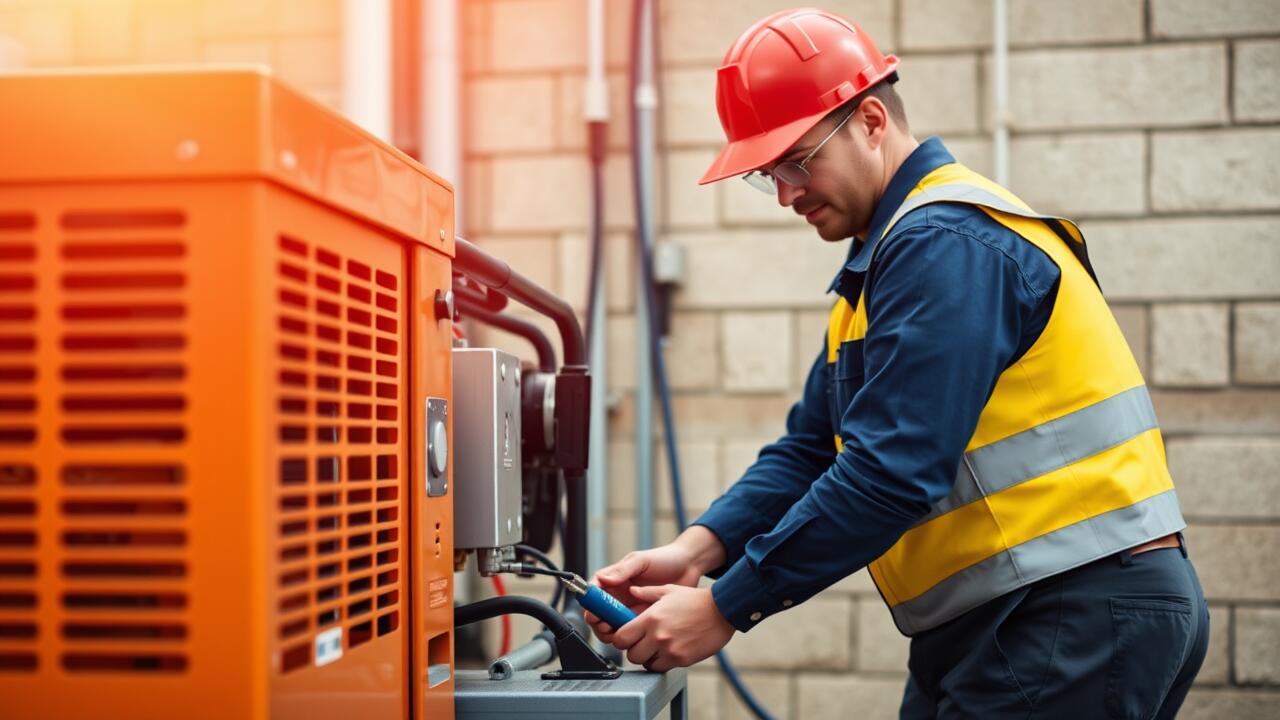
Choosing the Right Fuel Type
When selecting a generator for home use, the fuel type plays a crucial role in performance, availability, and efficiency. Gasoline generators are among the most common due to their accessibility and affordability. However, they typically have a shorter shelf life and require more frequent refueling. Propane generators offer longer shelf life and can operate efficiently at lower temperatures, making them a solid choice for many homeowners. Diesel generators, though generally more expensive, tend to have a longer lifespan and can provide more power, which may appeal to households with heavier energy demands.
Ultimately, the best fuel type will depend on individual needs and preferences. Considering the installation and maintenance costs associated with each option is vital. Many homeowners search for "Generator Installation near me" to find local professionals who can assist with selecting the right type of generator as well as ensuring proper setup. Understanding the pros and cons of each fuel source allows homeowners to make informed decisions that align with their energy requirements and operational preferences.
Comparing Gas, Diesel, and Propane Generators
When selecting a generator, considering fuel type is essential as it affects both performance and convenience. Gasoline generators are widely available and typically have lower initial costs. However, they can be less efficient and may require more frequent refueling than diesel or propane options. Diesel generators tend to have a longer lifespan and better fuel efficiency, making them suitable for heavy-duty applications. On the other hand, propane generators offer the advantage of cleaner burning and lower emissions, which can be a crucial factor for environmentally conscious homeowners.
Exploring options for "Generator Installation near me" can also provide insights into which fuel type is most readily available in your area. Local installers often have recommendations based on common practices and preferences in the community. Understanding the differences between these fuel types will help homeowners make informed decisions that align with their energy needs and lifestyle. Additionally, knowing what is most accessible for installation can simplify the process significantly.
Determining Run Time and Load Management
When selecting a generator for your home, understanding run time and load management is crucial. Run time refers to how long a generator can operate before needing a refuel, which varies based on fuel type and load. It's essential to assess your household's power requirements to determine the size of the generator needed. For peak hours when demand spikes, a generator needs to have sufficient capacity. Consider items like HVAC systems, kitchen appliances, and electronics when calculating the total load to ensure an uninterrupted power supply.
Load management is equally important, particularly in homes with multiple high-wattage devices. Properly balancing these loads can prevent overloading the generator, which may lead to damage or system failure. Regular maintenance and monitoring are advisable to maximize efficiency and longevity. If you need assistance with this process, searching for "Generator Installation near me" can connect you with local professionals who can help analyze your specific power needs and ensure you select the right generator for your situation.
Balancing Heavy Load and Continuous Use
When deciding on the appropriate generator for your home, understanding how to balance heavy load and continuous use is critical. Heavy load refers to the power consumed by high-demand appliances, while continuous use addresses the need for a generator that can sustain its output over extended periods without overheating or failing. Consider the wattage requirements of your household appliances to ensure that the generator can handle multiple devices running simultaneously. A generator with a higher starting wattage rating may be necessary to accommodate appliances like refrigerators, air conditioners, and power tools.
To achieve optimal operation, it is important to plan for both the daily and emergency power needs of your home. This planning includes not only the total wattage required but also the frequency of use for each device. Consult with professionals for accurate load assessment and generator sizing tailored to your specific needs. If you are looking for local assistance, searching for "Generator Installation near me" can provide you with resources and expertise to ensure that your generator setup adheres to safety standards and is reliable for ongoing use.
Safety Considerations with Generators
Safety is a crucial aspect to consider when setting up a generator. Proper ventilation is vital to prevent the accumulation of carbon monoxide, a colorless and odorless gas that can be deadly. Generators should always be operated outdoors in a well-ventilated area, ensuring that the exhaust is directed away from windows, doors, and vents. It's also important to check local regulations and guidelines related to generator placement to maintain safety and compliance.
Grounding the generator correctly is another key safety measure to prevent electrical hazards. This helps protect both the generator and connected devices from potential surges and can be crucial during bad weather. When planning for generator installation, searching for "Generator Installation near me" can connect homeowners with professionals who understand the necessary safety protocols. Following these precautions can significantly reduce the risk of accidents and ensure that the generator operates safely and efficiently.
Ensuring Proper Ventilation and Grounding
Proper ventilation is crucial for the safe operation of generators. They produce harmful gases, including carbon monoxide, which can pose serious health risks if allowed to accumulate in enclosed spaces. Installing the generator outside or in a well-ventilated area is highly recommended. Ensure that the exhaust is directed away from windows, doors, and air intakes. Regularly check for and remove any debris from around the generator to prevent airflow obstruction.
Grounding the generator correctly is another essential safety measure. This helps prevent electrical shocks and reduces the risk of damage from surges. Grounding involves connecting the generator to a proper grounding system that directs any stray electrical current safely into the earth. Utilizing licensed professionals for tasks such as Generator Installation near me is advisable to ensure compliance with local codes and standards. Proper installation contributes to a safer environment and improves the generator's overall performance.
FAQS
How do I determine the size of the generator I need to power my house?
To determine the size of the generator you need, first calculate the total wattage of all the appliances and devices you intend to power simultaneously. Consider the starting wattage for items with motors, and add those to the running wattage for a comprehensive estimate.
What fuel types are available for generators, and which is best for home use?
Common fuel types for generators include gasoline, diesel, and propane. Each has its pros and cons; gasoline is widely available but has a shorter shelf life, diesel offers better fuel efficiency and longevity, while propane is cleaner and can be stored for longer periods. The best choice depends on your specific needs and availability.
How can I manage the load when using a generator?
Load management involves prioritizing which appliances and devices you need to run simultaneously. You can achieve this by staggering their use, ensuring you do not exceed the generator's capacity, and using a transfer switch to facilitate safe connections to your home's electrical system.
What are the safety considerations I should keep in mind when using a generator?
Key safety considerations include ensuring proper ventilation to avoid carbon monoxide buildup, using a generator outdoors and away from windows and doors, grounding the generator properly, and keeping it dry to prevent electrical hazards. Always follow the manufacturer's guidelines for safe operation.
How long can a generator run continuously, and how do I factor in run time when choosing one?
The run time of a generator depends on its fuel capacity and load. Most portable generators can run between 8 to 12 hours on a full tank, while larger standby generators may last longer. Consider your power needs and how often you may need to refuel when selecting a generator for continuous use.



